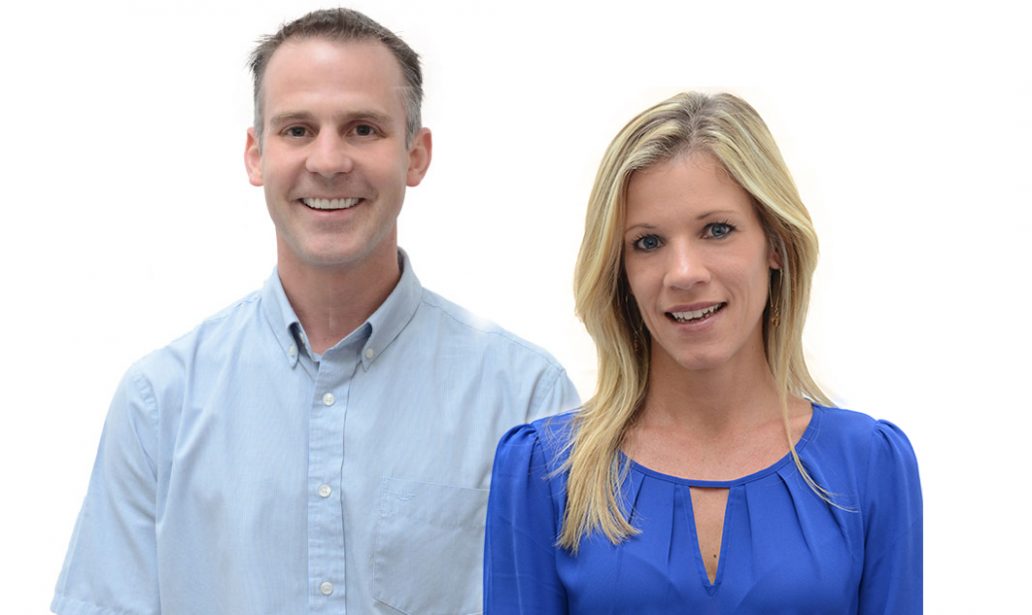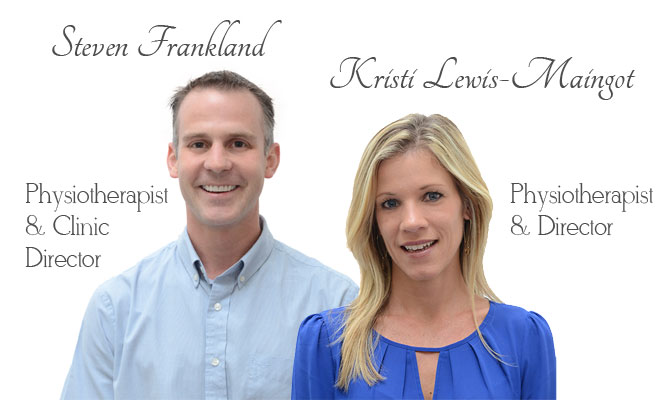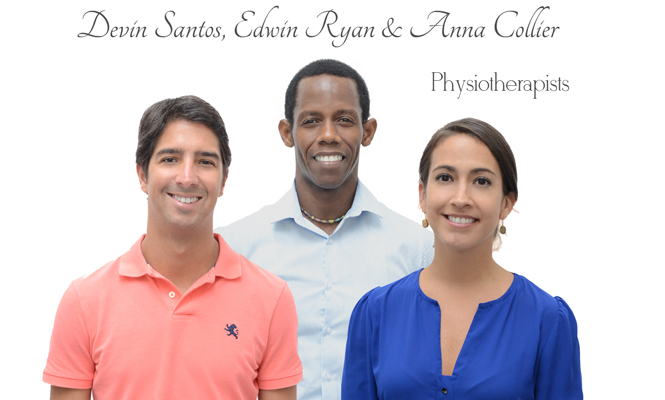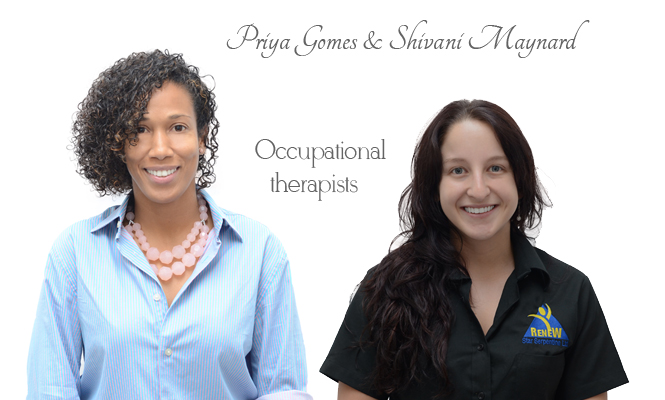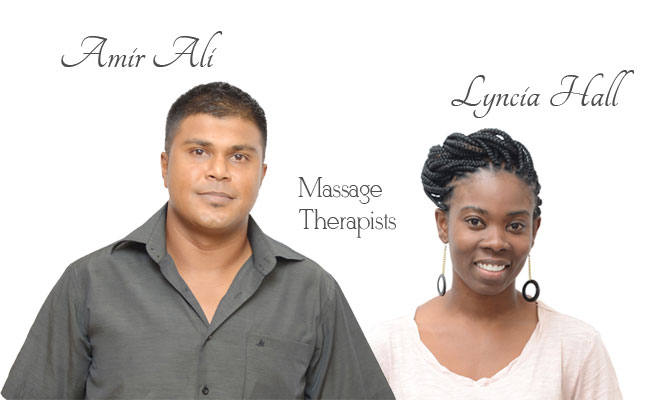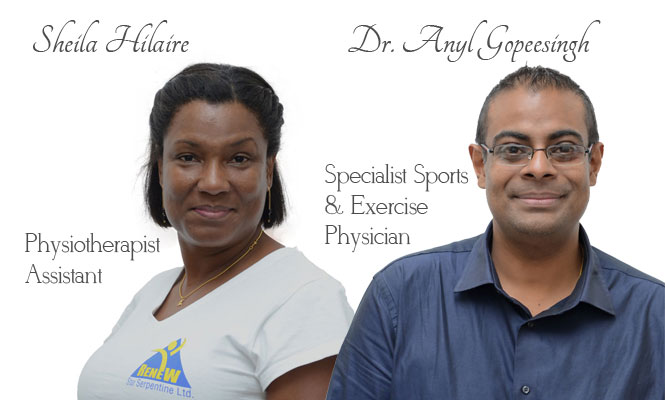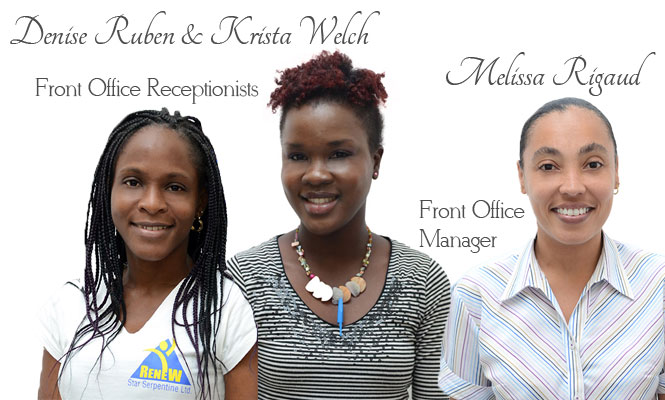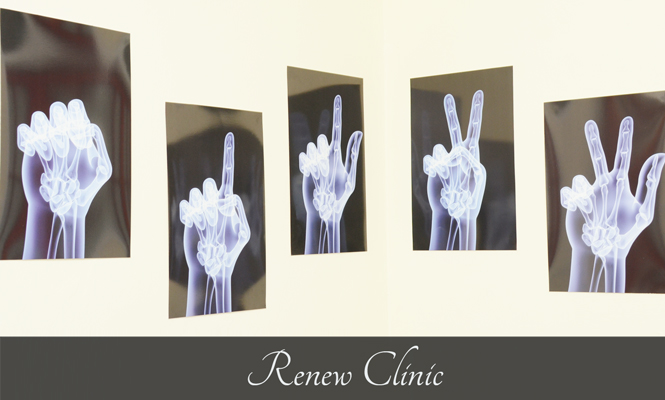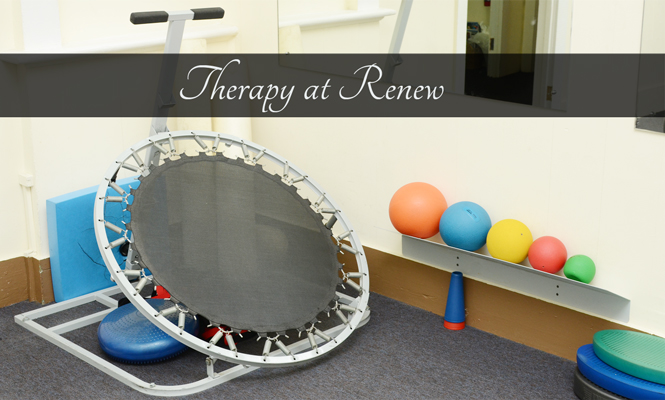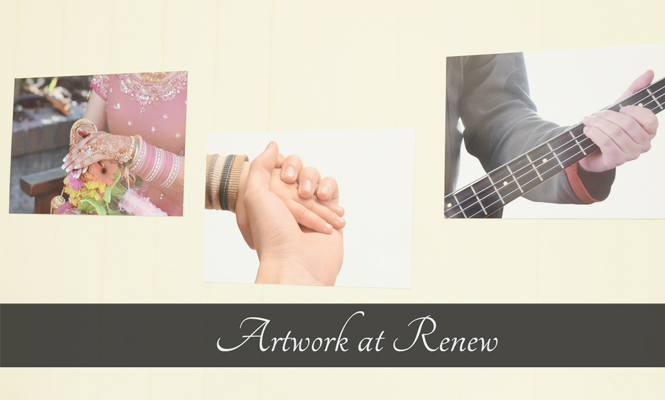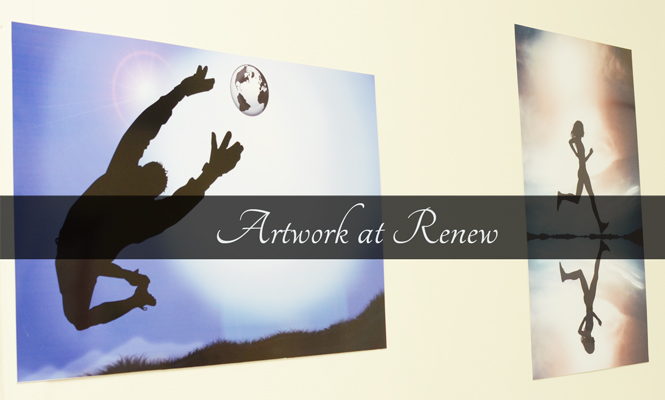The artwork is the first thing you notice — which is hardly something you would say about a clinic.
“We strive to stay away from the stark, clinical feel of a doctor’s office or a hospital,” explains Kristi Lewis-Maingot, co-owner and Director of Renew Star Serpentine Ltd., as she gestures to the walls of the clinic, where local art pieces are displayed in all their splendour.
“Some artists may not have the connection or exposure to galleries, but here, their artwork can capture an audience, and break the ice between therapist and patient, or between patients while they wait.”
Together with Clinic Director Stephen Frankland, Kristi owns and manages Renew Star Serpentine, a multidisciplinary rehabilitation clinic located in St. Clair, north-west Trinidad.
A tightly-knit family of therapists and support staffSince its inception in 2009, Renew has been home to a tightly-knit family of therapists and support staff with a wealth of local and international experience. Today, the Renew team consists of:
- Steven Frankland BSc, MCSP, Physiotherapist & Clinic Director
- Kristi Lewis-Maingot – Physiotherapist & Director
- Dr. Anyl Lloyd Gopeesingh – Specialist Sports and Exercise Physician
- Physiotherapists Anna Collier, Devin Santos, and Edwin Ryan
- Physiotherapist Assistant Sheila Hilaire
- Occupational Therapists Priya Gomes and Shivani Maynard
- Massage Therapists Amir Ali, Lyncia Hall and Donna Fossett
- Support staff, Front Office Manager Melissa Rigaud and Front Office Receptionists Denise Ruben and Krista Welch
The birth of Renew
Kristi’s own interest in the field of physiotherapy began when she hurt her neck as a teenager.
“I really enjoyed seeing the role the therapist played, and how she was able to get me back to doing the things I enjoyed,” she says.
I also get to have that emotional connection with patients“I realised that there were other roles that were just as important as a medical doctor’s. As a therapist, I still get to explore the scientific side of treatment, while I also get to have that emotional connection with patients and support them with so much more than just physical therapy.”
After finishing her doctorate in Physical Therapy, she worked in the United States for a few years before returning to her homeland of Trinidad and Tobago.
There, she soon joined forces with her friend’s husband, Stephen Frankland, a British national who had also recently moved to Trinidad.
“It was a good work marriage — I am American-trained, and Stephen is UK-trained,” she says. “There were slight differences in our approaches, and we were able to mesh these together into a cohesive Renew approach.”
Services at Renew
The word ‘Renew’, as Kristi explains, encapsulates the heart of what the team aims to do with the therapeutic services provided. Treating all ages from paediatric right up to geriatric needs, the services provided at the clinic include:
- Spinal problems
- Tension headaches
- Whiplash injuries
- Prolapsed/slipped discs
- Back pain
- Stiff/painful neck
- Referred pain
- Brachial plexus injuries
- Scoliosis
- Sciatica
- Post-operative treatments
- Total hip replacement
- Total knee replacement
- ACL reconstruction
- Arthroscopy
- Rotator cuff repair
- Hand injuries
- Carpal tunnel syndrome
- De Quervain’s Disease
- Flexor/extensor tendon repairs
- Finger/hand fractures
- Trigger fingers
- Mallet fingers
- Joint problems
- Arthritis
- Fractures
- Pain/swelling/stiffness
- Sports injuries
- Muscles – strains, hamstring and calf tears, groin strains
- Tendons – achilles tendonitis
- Ligaments – tennis elbow, golfer’s elbow, ankle sprains
- Neurological conditions
- Stroke
- Parkinson’s disease
- Multiple sclerosis
- Head injuries
- Ergonomic and postural dysfunctions
- Core strength/stability
- Geriatric conditions – poor balance, gait re-education
Renew Clinic: a patient-centric approach
Renew operates on an open-plan layout, with most therapy rooms (except massage rooms) shared by patients undergoing therapy sessions.
“While we do have private rooms that can be used if someone requests it, the general atmosphere is intentionally open,” says Kristi. “We believe that patients can encourage each other — ‘I was just like you a month ago, and look at me now!’ ”
She points out that patients can be encouraged just by being around each other, even if they don’t directly interact. She gives an example of a man with a knee injury encountering a young boy with an amputation on the bed beside him.
It’s not about feeling sorry for each other, but about knowing that you are not alone“It’s not about feeling sorry for each other, but about knowing that you are not alone,” she adds. “Whether it is a broken finger or an arm, every patient has his or her own journey. It creates an environment where someone can be motivated. Patients not only see each other, but they see each other improving with each therapy session.”
Another part of its patient-centric philosophy lies in the clinic’s daily functioning.
Staff members are not allowed to park on the premises, as the limited parking spots are left open for patients who may be mobility impaired.
The clinic’s hours also facilitate the bulk of patients who may need to go to therapy before or after work. For those who live and/or work quite far from the clinic, Saturday morning hours are also an option.
Also, during a therapist’s out of office hours, patients can contact the clinic through the office manager’s email, and she will in turn get in touch with the therapist if needed.
“Communication is key,” adds Kristi. “Often, you can’t email or call a medical professional for advice after you step out of their office. But if I see a patient on Friday, I don’t know how much worse the person could get by Saturday or Sunday morning. Patients rely on us for that extra support.”
Therapy: what to expect
The Renew treatment approach relies on objective measurements and constant evaluation, using a range of therapeutic devices and equipment.
Objective measurements and constant evaluationA minimum of three weeks is recommended for new patients, with therapy sessions two to three days per week. After this period, progress is measured. In this way, even if the patient is still in pain, measurements would demonstrate any slight variations of increased mobility or range of motion.
One of the key aspects of physical therapy that the clinic has recently begun to explore is gait analysis.
Run by Clinic Director Stephen Frankland, the detailed evaluation involves the video recording of a patient’s movements while walking, squatting or running up and down the stairs. Further to a frame-by-frame analysis of movements, Stephen is then able to recommend a customised treatment plan and provide education to the patient on the most appropriate footwear.
“It is not always possible for a doctor or even a diagnostic machine to capture the exact underlying cause of a problem,” explains Kristi. “Particularly for patients experiencing chronic pain, we have found that this detailed analysis is extremely useful for troubleshooting and subsequent treatment.”
An important part of the therapeutic experience is educationAnother value-added service is provided by the clinic’s sports and exercise specialist, Dr. Anyl Gopeesingh: a diagnostic ultrasound for patients who may not have had these tests done prior to coming to the clinic. The technology used is more powerful than an X-ray, but at a much lower cost than an MRI.
Finally, an important part of the therapeutic experience is education.
“Sitting, standing, lying down, getting in and out of bed — all of this, a patient has to re-learn and adapt,” Kristi says. “It can be a long and difficult process, but we are here to hold your hand and guide you through the journey to get to a state where you are comfortable and independent.”
A network of care
Another crucial part of the clinic’s overall approach is networking with doctors and other professionals.
“If a patient comes to us and we feel it is beyond our scope, we can send them to a surgeon,” says Kristi.
The post-operative healing process is much simpler“Likewise, we always ask doctors and surgeons to send us their patients prior to surgery. That way, the post-operative healing process is much simpler as they know what to expect. In some cases, the less invasive approach may delay or cancel out the need for surgery altogether.”
Another aspect is the integration of additional services that the clinic is not able to provide.
“Psychology, hydrotherapy, treatment for wounds and burns, professional nutritional advice — all of these things we would love to have in-house, but until we do, we are happy to take a proactive approach and call a colleague, and get the patient on their roster as soon as possible,” she adds.
She also hopes to see the clinic expand to feature more retail products, as patients often have difficulty locating the recommended devices once they leave the clinic.
“We carry a few — ice packs, heat packs, thera-bands for exercising, but it is not enough,” she notes. “One of our biggest challenges is footwear. When you’re in pain, the last thing you want is to sit in traffic or drive all over the country looking for something you need.”
We are here to try to get you back to your lifeThe vision is for the patient to come to the clinic, and leave with all the tools they need to get well.
“We are here to try to get you back to your life with the least amount of hassle possible,” says Kristi.
“Put that hassle and that worry on us. Our team is really phenomenal when it comes to understanding what patients need, and we always remind ourselves that at the end of the day, it’s about the patient’s journey to recovery.”
Further Information
- Patients are advised to come in loose-fitting attire that can allow the therapists to easily access the injured body part if needed.
- Doctors can refer possible pro bono cases if a patient is in need, and evaluations will be done on a case-by-case basis. Often, even if the patient cannot afford a full course of therapy treatment, education and advice can be a valuable part of treatment.

